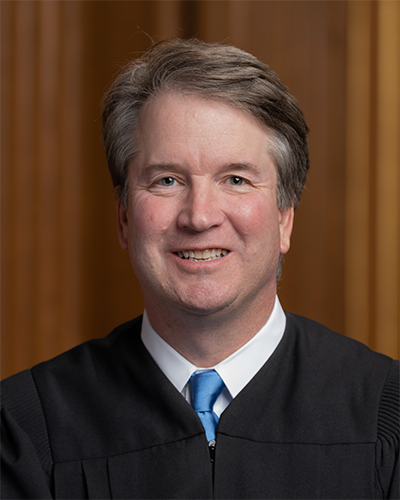Kavanaugh corrects opinion after Vermont official complains

Justice Brett M. Kavanaugh.
Justice Brett M. Kavanaugh has made a one-word change in his concurring opinion in a Wisconsin election case after a complaint from the Vermont secretary of state.
Kavanaugh wrote the opinion on Monday when the U.S. Supreme Court refused to reinstate a judge’s extended deadline to count absentee ballots in Wisconsin. Kavanaugh made the correction on Wednesday, the New York Times reports.
In the initial opinion, Kavanaugh said state courts don’t have “a blank check” to rewrite state election laws for federal elections. He noted that state legislatures had responded in different ways to the COVID-19 pandemic, reflecting the constitutional system of federalism.
Some states had changed election rules, Kavanaugh wrote. “Other states such as Vermont, by contrast, have decided not to make changes to their ordinary election rules, including to the election-day deadline for receipt of absentee ballots.”
Vermont Secretary of State Jim Condos said in his letter requesting a correction that Vermont had actually made two significant changes to election rules in response to the pandemic. The state had mailed every active registered voter a ballot and a return envelope. And election officials in the state began processing mail-in ballots in the 30 days before the election.
“These two actions factored significantly in our decision to hold to existing law requiring the Election Day receipt of mailed ballots,” Condos wrote.
The changes were authorized under Vermont law and did not require legislative approval, Condos said.
Kavanaugh corrected his opinion by adding the word “deadline,” so that he says Vermont made no changes to “election-deadline rules.”
After Kavanaugh issued the corrected opinion, Condos said in a statement that he was glad Kavanaugh acknowledged his mistake, “but a one-word addition doesn’t go far enough.”
“The opinion still misrepresents the significant changes we made here in Vermont to ensure every vote counts in the middle of a global pandemic, so that no voter has to choose between their health and their right to vote,” Condos wrote.
Experts told the New York Times that revisions to opinions are rare. The mistake, they said, highlights the U.S. Supreme Court’s quickly issued decisions in 2020 election matters. The decisions are part of the court’s so-called shadow docket, in which the court issues emergency orders and summary decisions outside the main docket of argued cases and decisions.
University of California at Irvine law professor Richard Hasen says there are other mistakes in Kavanaugh’s opinion as well. In a Washington Post op-ed, Hasen says Kavanaugh misstated a holding in a voting case, mischaracterized a law professor’s article on whether ballot deadlines should be extended, and mischaracterized how ballot counting works.
Kavanaugh “is usually a careful analyst of legal issues, but this election law opinion was sloppy,” Hasen wrote. The opinion also “echoed Trump’s false talking points about the perils of voting by mail,” Hasen said.



